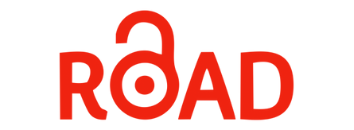PERBANDINGAN KEMAJUAN KARIR ANTARA MANAJER WANITA DAN MANAJER PRIA DI INDONESIA
DOI:
https://doi.org/10.24002/kinerja.v7i2.793Abstract
This research that concerns managers' career progression in Indonesia was carried out in sixteen companies. It is intended to analyze the differences between female and male managers' career progression, by using human capital theory, family power theory, self-selection, industry differences, and also to examine the possibilities about discrimination. The research samples are managers who have been working at least for five years and have been geographically transferred (among cities) to promote their career. The method of sample determination was performed by purposive sampling. The data were obtained by interviews and distributing questionnaires directly and by mail. The respondents consisted of 40 female managers and 114 male managers, with a response rate of 34%. Statistical data processing was conducted by using hierarchial and full regression. The result of the analysis about managers' career progression in Indonesia show that female managers are lagged behind male managers in geographic mobility, but female managers are more advanced than male managers in salary progression and promotion. Discrimination doesn't take role in managers' career progression in Indonesia. Female managers who want to advance in career, have to be better in education than male managers’ education level.
Keywords: career progression, human capital theory, family power theory, self-selection, industry differences
References
Arivia, G., (2002), “Mengapa perempuan dipentingkan dalam pendidikan?” Jurnal Perempuan, 23: 4-5.
Azkiyah, N., (2002), “Keterkaitan pendidikan formal perempuan dan dunia pembangunan,” Jurnal Perempuan, 23: 7-16.
Cascio, W.F., (1998), Managing human resources (5th ed.), Irwin McGraw-Hill, Boston.
Chenevert, D., & M. Tremblay, (1998), “Predictors of hierarchical success for male and female Canadian managers,” diakses http://www.cirano.umontreal.ca/publication/ page1.html,
tanggal 1 Mei 2002.
Chorney, H. (2002), “Human capital theory and the supply of labour," diakses http://www.pch.gc.ca/offlangoff/perspectives/english/economic/ch5_02.html, tanggal 3 Mei
Dessler, G., (1997), Human resource management (7th ed.), Prentice Hall, Inc., New Jersey.
French, W., (1994), Human resource management (3rd ed.), Houghton Mifflin Company, Boston.
ILO Publications Center,(2002), “U.S. Women make more progress in management than women abroad,” diakses http://www.womenof.com/Articles/cb71601.asp, tanggal 21 Februari 2002.
Lyness, K.S., & M.K. Judiesch, (2001), “Are female managers quitters? The relationship of gender, promotions, and family leaves of absence to voluntary turnover” Journal Applied Psychology, 86(6): 1167-1178.
Mantra, I.B., & Kasto, (1989), “Penentuan sampel” dalam Singarimbun, M., & Effendi, S (Eds.), Metoda penelitian survei: 150-173, PT. Midas Surya Grafindo, Jakarta.
Martins, L.L., K.A.Eddleston, & J.F.Veiga, (2002), “Moderators of the relationship between workfamily conflict and career satisfaction,” Academy of Management Review, 45(2): 399-409.
Naisbitt, J., & P.Aburdene, (1990), Megatrends 2000: Ten new directions for the 1990's, William Morrow and Company, Inc., New York
Naisbitt, J., (1995), Megatrends Asia: The eight Asian megatrends that are changing the world, Nicholas Brealey Publishing, London.
Noe, R.A., Hollenbeck, J.R., B.Gerhart, & P.M. Wright, (1994), Human resource management: Gaining a competitive advantage, Irwin, Inc., Illinois.
Sekaran, U., (1992), Research method for business: A skill building approach (2nd ed.), John Wiley & Sons, Inc., London.
Stroh, L.K., J.M.Brett, & A.H. Reilly, (1992), “All the right stuff: A Comparison of female and male manager's career progression” Journal Applied Psychology, 77(3): 251-260.
Sugiyono ( 2000), Metoda penelitian bisnis, CV. Alfabeta, Bandung.
Torrington, D., & T.C. Huat, (1994), Human resource management for Southeast Asia, Prentice Hall, London.
Umar, H. (2001), Riset sumberdaya manusia dalam organisasi, PT. Gramedia Pustaka Utama, Jakarta.
Women’s Studies Encyclopedia, (2002), “Human capital theory”, diakses http://www.gem.greenwood.com/wse/wse_sam.htm, tanggal 23 Mei 2002.














